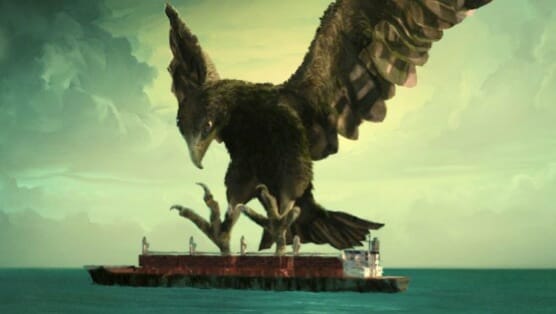Last Hijack

Mohamed is a career pirate. He’s been hitched to a handful of women throughout his adulthood, and he’s currently locked into a new engagement that will see him married once more, but his heart truly belongs to the sea. The reason is clear after spending just a few minutes with him in his impoverished hometown: piracy pays handsomely, both in cash and in notoriety. If nothing else, it certainly beats the back-breaking alternative of busting up rocks in dusty old quarries for next to nothing. That’s why, even on threat of annulment and against the wishes of his desperate parents, Mohamed can’t help but plan one final act of maritime treachery. Morals be damned, it’s a pirate’s life for him.
This sounds like the IMDB summary of the latest thriller concerned with global oceanic theft, but Mohamed isn’t a fictional character. He’s a very real human being, and he’s one of the most experienced pirates in the world capital of piracy, Somalia. The idea of catching up with Mohamed and committing his story to cinema sounds far fetched. Simply getting access to him seems a Herculean task, to say nothing of the logistics of filming him as he cooks up an ill-advised piracy scheme in the days leading up to his nuptials. But that’s exactly what Tommy Pallotta and Femke Wolting have done with their joint documentarian effort, Last Hijack, and the fruits of their labors make for compelling, provocative viewing.
Last year, the movies treated Somali piracy as a stage for entertainment. Chiefly, this is thanks to Paul Greengrass’ excellent true story drama, Captain Phillips, though ample credit should be accorded to the Danish thriller A Hijacking, too. Both pictures find thrills either in recreating or in pantomiming real acts of banditry on the high seas, installing buccaneers as their heavies and hapless white boatmen as their protagonists. Last Hijack takes us past all of that via Mohamed’s daily existence; we meet his parents, his wife (and in-laws) to be, and we observe the destitute panorama of life in Somalia along the way. This is a deprived land, inhabited by a struggling populace.
-

-

-

-

-

-

-

-

-

-

-

-

-

-

-

-

-

-

-

-

-

-

-

-

-

-

-

-

-

-

-

-

-

-

-

-

-

-

-

-








































